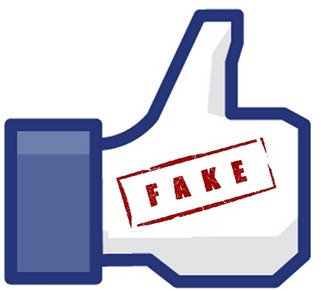Facebook has announced a plan to tackle the problem of fake likes generated by bots, malware and other fraudulent means.
The announcement came on the back of Facebook’s admission that 1.5% of its 955 million accounts are ‘undesirable’. Facebook defines these as “user profiles that we determine are intended to be used for purposes that violate our terms of service, such as spamming.”

The company communicated the plan through a post on its Information Security page stating…
“These newly improved automated efforts will remove those Likes gained by malware, compromised accounts, deceived users, or purchased bulk Likes. While we have always had dedicated protections against each of these threats on Facebook, these improved systems have been specifically configured to identify and take action against suspicious Likes.”
Fraud related to likes or bulk likes have been cause of concern to Facebook for some time now.
Google is acknowledged to be ahead of the game in its ability to filter out ‘invalid clicks.’ The company claims that “the aggregate value of the clicks that we’ve identified as suspicious or invalid and excluded from what we’ve charged advertisers is in the hundreds of millions of dollars.” Google also allows Ad Words advertisers an option to check the invalid clicks that have been filtered out.
These measures have served to maintain advertisers’ trust in Google AdWords and AdSense, something that Facebook would do well to learn from.
Recently a music industry start-up, Limited Run, caused some damage to Facebook’s reputation when it revealed credible information that 80% of the likes to its Facebook page were from bots.
The likes from ad clicks can constitute a significant portion of a company’s social media marketing budget, and for a start-up this can amount to a considerable loss.
While Limited Run clarified that it did not suspect Facebook of being involved with the bots, it maintained that Facebook had not demonstrated any serious intention to deal with the problem, despite the reasonable evidence provided by the company.
Since the disastrous launch of its initial public offering earlier this year, Facebook has lost nearly $50 billion in market value. Facebook’s stock price plummeted to an all-new low last Friday,plunging to $18.06. Given that Facebook earns nearly 90% of its revenues from advertising, it needs to make strong efforts to retain advertisers’’ trust.
The effort to clear up the fake likes is most likely related to Facebook’s desperation to protect its advertising revenues.
While Facebook’s Information Security page did not provide further details on how exactly the automated system would work, it hastens to reassure advertisers that the clean-up actions would lead to a reduction of “less than 1% of Likes on any given Page” on average.
The post Facebook set to delete fake likes! appeared first on India Business & Technology Hub.
No comments:
Post a Comment